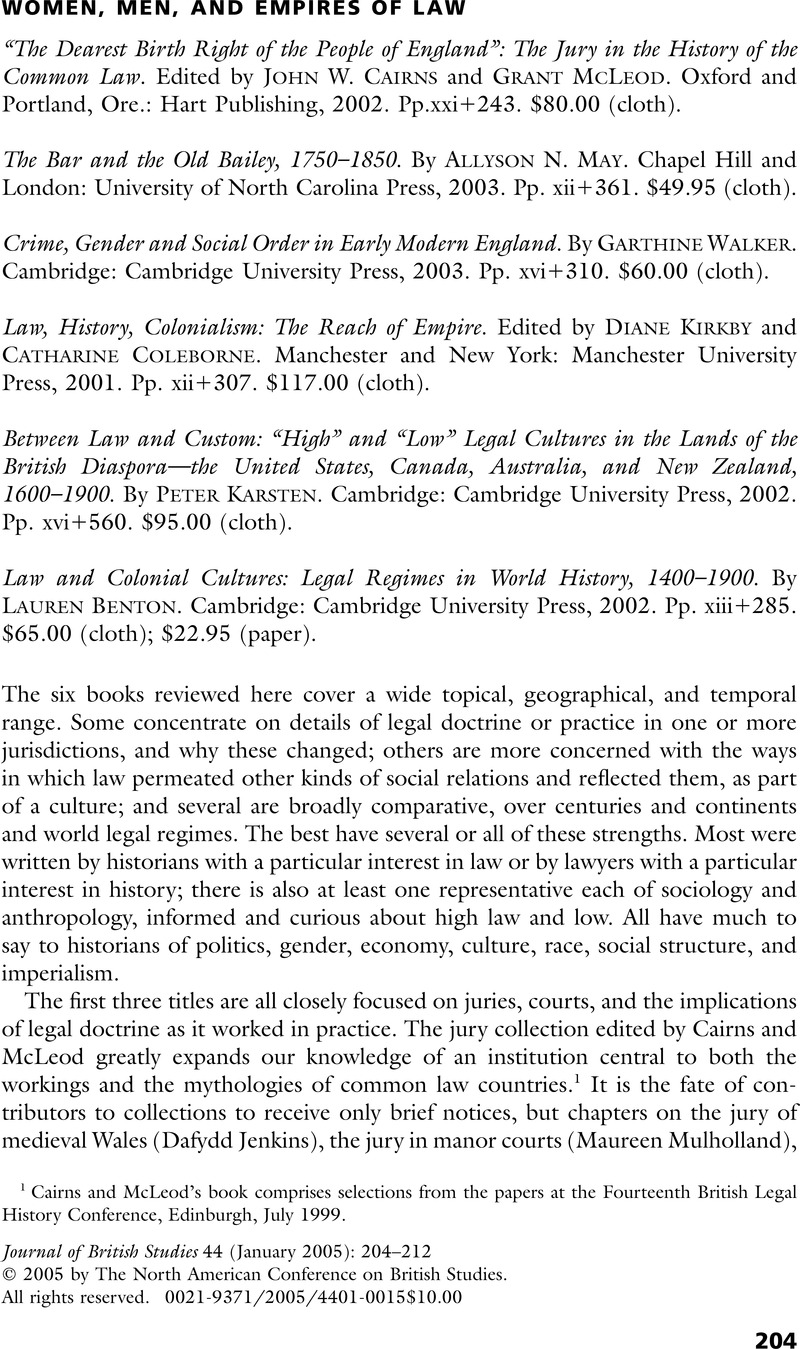Article contents
Women, Men, and Empires of Law
Published online by Cambridge University Press: 21 December 2012
Abstract

- Type
- Review Essays
- Information
- Copyright
- Copyright © North American Conference of British Studies 2005
References
1 Cairns and McLeod's book comprises selections from the papers at the Fourteenth British Legal History Conference, Edinburgh, July 1999.
2 Published by Juristat, and available now in an online version as well as on CD-ROM.
3 Cairns, David J. A., Advocacy and the Making of the Adversarial Criminal Trial, 1800–1865 (Oxford, 1998), pp. 29–36Google Scholar. See Langbein, John, The Origins of Adversary Criminal Trial (Oxford, 2003)Google Scholar, for his summation of the value of Old Bailey reports and advocacy there.
4 Lemmings, David, Professors of the Law: Barristers and English Legal Culture in the Eighteenth Century (Oxford, 2000), pp. 205–25CrossRefGoogle Scholar.
5 Walker does not consider whether the higher rate of acquittals might be in part explained by the fact that juries sometimes acquitted because they knew that these mitigating defenses were not available to women.
6 Kermode, Jenny and Walker, Garthine, eds., Women, Crime and the Courts in Early Modern England (London, 1994)Google Scholar.
7 In this case, the seventeenth Annual Law and History Conference, organized by the Australian and New Zealand Law and History Society, with the assistance of the Canadian Law and Society Association, in July 1998.
8 A sustained version of this argument, focused on the law of employment, is Hay, Douglas and Craven, Paul, eds., Masters, Servants, and Magistrates in Britain and the Empire, 1562–1955 (Chapel Hill, N.C., 2004)Google Scholar.
9 Mackenzie, John M., The Empire of Nature: Hunting, Conservation and British Imperialism (Manchester, 1988)Google Scholar.
10 Karsten, Peter, Head versus Heart: Judge-Made Law in Nineteenth-Century America (Chapel Hill, N.C., 1997)Google Scholar.
11 For an overview of custom and law in England, see Hay, D. and Rogers, N., Eighteenth-Century English Society: Shuttles and Swords (Oxford, 1996), chap. 6 and suggested readingGoogle Scholar.
12 Hay and Craven, Masters, Servants, and Magistrates, chap. 3.
13 Glenn, H. Patrick, Legal Traditions of the World (Oxford, 2000)Google Scholar.
14 For example, Hooker, M. B., Legal Pluralism: An Introduction to Colonial and Neo-Colonial Laws (Oxford, 1975)Google Scholar.
- 1
- Cited by




